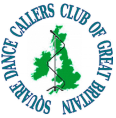On Gender Free Dancing
Extract from Article in What's Afoot, March 2019:
Having been a strong (perhaps
even outspoken) proponent of this, I have found my thoughts have been
evolving on the topic. It has been particularly
interesting to see the effects of gender free, both as a caller, and
as a dancer.
Attempts at Gender Free calling
at festivals (IVFDF, Sidmouth) and other events have led to some
kickback and in cases reduced attendance. Whilst
there are undoubtedly some dinosaurs out there, the scale of the
reaction was a little surprising, as was the source and the nature of
the objections.
Using gender free terms was
causing confusion, even amongst seasoned dancers, and especially at
contra dances. I expected this to improve but it
doesn't seem to have done so. A number of
"complaints" I have heard refer to being unable to enjoy the dancing
because of having to think too much about the role.
In addition, gender free role
names particularly cause problems for beginners.
There is a lot to remember as a beginner, and adding in an arbitrary
role name is a big additional mental burden. For
most people the advantage of dancing your "natural" role is that you
don't have to think "am I a Man (Lady)?", whereas "am I a Lark
(Raven)?" adds significantly to the cognitive process.
You now have to take in an instruction, process whether it's
meant for you, then recall the instruction and do it.
Much quicker to be able to just do it.
There is another aspect to using
gender free terms that has perhaps been ignored in our desire to do
"right". Many people like the traditional approach,
and it is part of the whole experience for them. "I
like being called a Lady" said one regular contra dancer.
Is this wrong? I find it hard to see why it
would be.
And it’s putting people off.
Apart from discouraging beginners, there are people who refuse
to attend gender free dances. Several people have
said they are not going to attend the Exeter Ceilidh Series because
it’s gender free - and yet it isn’t!
This made me revisit my thinking
on gender free and inclusiveness. I started to
wonder if gender free labels were the right approach, and indeed if we
were even trying to solve the right "problem".
Putting it bluntly, there’s no
point having a gender free dance scene if there are no dancers.
Is it necessary to change the
words we use? I’m beginning to think that the
answer is no, and that it’s actually the wrong thing to do.
Let’s look at the Gay MWSD scene
in the US. They still use gendered terms (because
they have no choice), yet there is no objection to this.
People do not feel their gender is assumed, they just accept
the terms are role identifiers and get on with the dancing.
I’m not even sure changing the
words will work long term either. I have noticed that
when we do, most couples still line up in the traditional manner -
male on the left, female on the right. Ultimately
Larks will come to mean Men, and Ravens Women, and we’re back where we
started. 'Identity categories are never merely
descriptive, but always normative, and, as such, exclusionary.' Butler
– 1991.
The issue we are seeking to
address (IMHO) is acceptance. People should be able
to dance whatever role they like without assumption, negative reaction
or being told they’re “on the wrong side”.
Nowadays people are mostly
comfortable with two men dancing together (having always been so with
two women), and with couples who swap roles. They
don't make assumptions, they just accept it.
Aside from the downsides of
gender free role names seeming to outweigh the limited (yet important)
benefits of using them, I think we are in danger of thinking we have
fixed the problem, when in fact we may have just driven it
underground.
What we are trying to achieve can
be done in other ways. We can all be accepting.
Dancers: don’t tell people they’re the wrong way round
(it’s not “wrong”). If you’re sure they intend to
dance male on the left, female on the right and they’re not standing
that way round, ask them if they’re intending to dance swapped roles.
I think callers can promote
acceptance by the words and phrases we use, without resorting to
artificial terms. "If you're on the left you're
dancing the man's role, if on the right, the lady's role.
I don't care which you actually are but those are the terms we
use." “1s swap sides if you want to”.
Do your bit.
